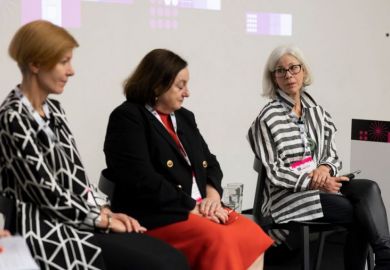Restrictions on the amount of time international students can work during term time will not be reinstated until mid-2023, Australia’s government has decided. And Canberra will allow overseas graduates of Australian universities to remain and work in the country for up to six years.
Commitments announced during the much vaunted Jobs and Skills Summit could have significant impacts on foreigners’ ability and desire to choose Australia as a study destination. Immigration minister Andrew Giles promised to boost visa administration staffing capacity by 500 over the next nine months, and said average processing times for student visas lodged offshore had already fallen by almost a quarter since May.
“The backlog will be cleared,” Mr Giles vowed. “Waiting times will continue to come down.”
Home affairs minister Clare O’Neil announced that Australia would increase its permanent skilled migration intake this financial year by 35,000, potentially improving foreign graduates’ prospects of settling in the country permanently.
Ms O’Neil also flagged a “major review” of the migration programme and promised that it would happen quickly. “We’re going to have to renovate the plane while it’s in the air because our migration system is back up and running,” she told the summit.
“In order to build a migration system for the future, we are all going to have to make a big shift in our thinking. And that shift is moving away from a system which is almost entirely focused on how we keep people out to one that recognises that we are in a global war for talent. For the first time in our history, Australia is not the destination of choice for many of our skilled migrants.”
Ms O’Neil said the suspension of the 40-hour fortnightly restriction on overseas students’ working hours, a supposedly temporary measure implemented last January by the previous government, would remain in place for another 10 months. “June 2023 feels…like the right time,” she said. “We need it to continue while the skills crisis is so acute, but we also need it to end because this is not what our education system is about.”
The announcement is unlikely to please either those who want the restriction removed permanently or those who want it reimposed immediately. Immigration expert Abul Rizvi said the work rights Australia granted to people on student visas left them “vulnerable to exploitation and abuse”.
“Like North America and Europe, we are now barrelling towards becoming a fully-fledged low-skilled guest workers society,” Dr Rizvi told the summit.
Ms O’Neil said Australia would also “allow graduates of Australian universities to work in Australia for longer”. In a joint statement with education minister Jason Clare, she later clarified that this would apply to graduates of “select degrees in areas of verified skill shortages”.
She said post-study work rights would be increased to four years for select bachelor’s degrees, five years for select master’s qualifications and six years for select PhDs. A working group will be convened to advise the two ministers on the proposal, reporting in late October.
This proposal too is likely to arouse a degree of scepticism, with Australia already granting university graduates post-study work rights of up to five years – significantly longer than competitor countries.
Research suggests the main problem foreign graduates face in Australia’s labour market is securing jobs that match their skills, with employers reluctant to hire temporary residents.
New South Wales premier Dominic Perrottet told the summit that Australia must find better ways of offering students “permanency and a greater residency status”.
“They’ve got their qualification. We need to, in the long term, be investing in those areas which are going to drive opportunities for them to stay in those professions.”
Register to continue
Why register?
- Registration is free and only takes a moment
- Once registered, you can read 3 articles a month
- Sign up for our newsletter
Subscribe
Or subscribe for unlimited access to:
- Unlimited access to news, views, insights & reviews
- Digital editions
- Digital access to THE’s university and college rankings analysis
Already registered or a current subscriber?








